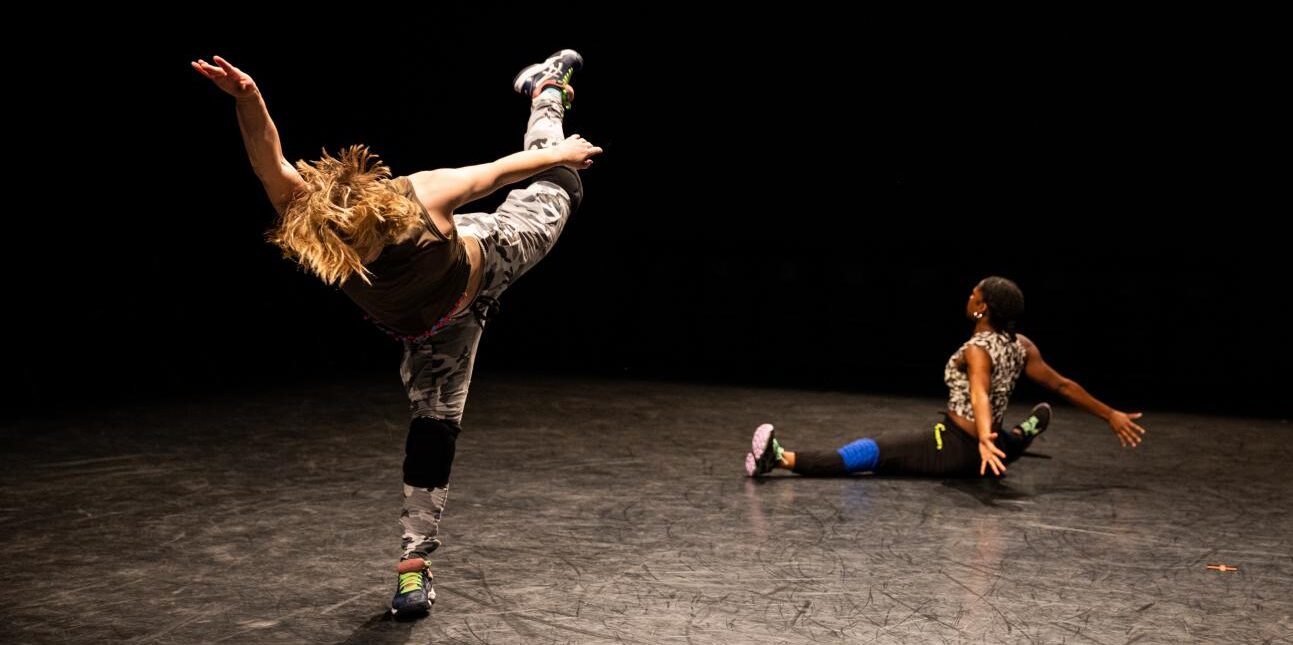‘Radioactive Practice’ is an incredibly difficult piece to review, not because it was bad; it wasn’t, but because there is no narrative to speak of. On top of this, there is only an episodic use of music and this too, is often discordant. How do you tell a story about something which is story-less? You can do it with Beckett because the words have such overarching beauty and despite the seeming nihilism, in the relationships between the characters, there is always a tenderness. Here, there is coupling, unisons of sorts but mostly, the production seems to be about what bodies can do. There is great acrobaticness (is that even a word?) to the whole performance, a great virtuosity; bodies in all forms of motion. I felt as if I were watching a communist period Eastern European feat of gymnastics. From the side, shouts from the dancers, ‘Yes!’, ‘Come on,’, ‘You can do it.’
There were two dancers who, for me, stood out. One was the young man in shorts and the other was a woman with a sleek cap of blonde hair. When he leaped and when she fell, plonk, to the ground, I was left gasping.
There was a woman who came on as if holding, with one hand, a plate, like a waitress in a busy restaurant, weaving her way through the punters; her other hand, schizophrenically shivering and swerving, out of control. One body, propelled by two different instincts of movement. The wavering, the bodies gone wrong, which seemed to be a theme in the show, I found fascinating.
I also especially liked when the company took the simple ‘cha cha cha’ rhythm and instead of dancing elegantly around the stage, banged the rhythm on the ground with outspread hands. That was fresh, endearing.
While the first segment of the show centres around individual dancers, allowing them the space for singular display, in later movements the dancers join together in dance. Both configurations had rawness and beauty to them.
One of the most powerful moments in the production is when two dancers stop and hold each other. It’s Pinteresque. It’s love. It’s all these things we find in the slowing down of time.
Production: Radioactive Practice
Company: Abby Z and the New Utility

